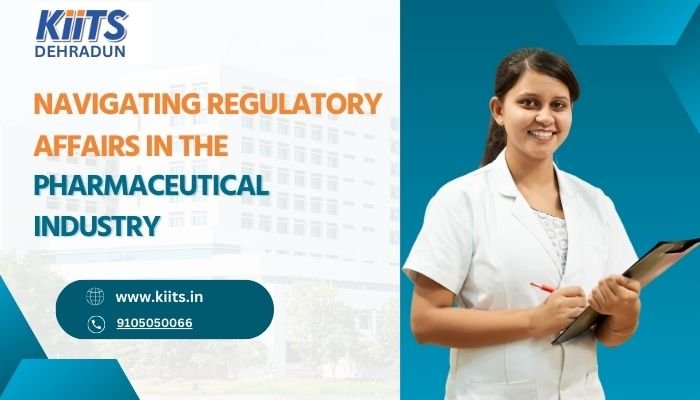Regulatory affairs, or RA, is crucial to the pharmaceutical industry’s introduction of novel medications to the market and to maintaining those medications’ accordance to strict regulations. Pharmaceutical industry that want to stay ahead of the competition and protect public health must be able to navigate the complex world of drug regulation. This article explores the important duties and difficulties that the pharmaceutical industry’s regulatory relations department faces.
Regulatory Affair’s Function in the Pharmaceutical Sector

The foundation of compliance and communication between the pharmaceutical industry and regulatory bodies is the regulatory affairs department. Before any pharmaceutical product is approved for use, this section makes sure it satisfies all legal and scientific standards. The following are the main duties of the regulatory affairs team:
Getting Regulatory approval:
One of the main responsibilities is obtaining permission from regulatory organisations, such as the European Medicines Agency (EMA) in Europe, the Food and Drug Administration (FDA) in the United States, and other international organisations. This entails gathering thorough documentation attesting to the quality, safety, and efficacy of novel medications.
Sustaining Product Approval:
The regulatory affairs division is responsible for making sure that regulations are continued to be followed once a medicine is placed on the market. This entails responding to any questions or concerns raised by regulators, managing labelling modifications, and providing regular safety updates.
Regulatory Strategy and Advice:
RA specialists give project teams vital advice regarding regulatory plans and requirements. They aid in the interpretation of complicated legislation and foresee the requirements that regulatory bodies will have for product approval, influencing the development process.
Documentation and Submissions:
A major responsibility of the RA department is the creation and submission of regulatory documentation. Applications for marketing permission, clinical study approvals, and product variants are all included in this. The success of the regulatory review process depends on these documents being thorough, uniform, and easy to understand.
Regulatory intelligence:
It’s critical to stay up to date with changing rules, policies, and industry standards. In order to enable proactive adaptation to new regulations, RA experts must regularly monitor regulatory developments and share insights to their organisations.
Regulatory Affairs Significance to Pharmaceutical Success

This department plays a crucial role in pharmaceutical industry strategic planning and success, going beyond simple compliance. RA specialists assist in the timely introduction of safe and efficient medications onto the market by making sure that goods fulfil regulatory requirements and assisting development teams with the clearance procedure.
This industry can also influence regulatory regulations through the RA department’s aggressive participation in legislative talks, creating an atmosphere that is more conducive to innovation. Early involvement can influence future regulatory frameworks in the International Council for Harmonisation (ICH) environment, which will benefit the entire sector.
Difficulties with Drug Regulatory Affairs
Several difficulties arise when navigating the drug regulatory affairs landscape:

Regulatory Frameworks:
Regulatory frameworks are intricate and dynamic, undergoing regular modifications. For RA experts, staying up to date on these changes and comprehending their effects on drug development and implementation presents a big challenge.
Global Regulatory Variations:
Since every nation has a different set of regulations, every market requires a different set of strategies. Complexity is increased further by harmonising these specifications to expedite submissions from throughout the world.
Data management and integrity:
It’s critical to guarantee the precision and consistency of data that is provided to regulatory bodies. This entails handling enormous volumes of safety reports, manufacturing records, and data from clinical trials.
Timely Submissions:
In order to prevent delays in product approval and market entry, it is essential to meet regulatory submission deadlines. This calls for careful project management and collaboration across the pharmaceutical industry many departments.
Risk management:
To prevent any compliance problems and guarantee the smooth advancement of regulatory submissions, it is crucial to identify and mitigate regulatory risks throughout the drug development process.
Establishing Good Working Relationships :
Working with Authorities: It’s important to build and preserve solid working relationships with regulatory authority. This partnership makes it easier to have conversations about clinical research plans, formulary creation, and guideline variances, which guarantees a more seamless regulatory procedure.
To sum up, the success of a pharmaceutical firm depends on the RA department, which assures regulatory compliance, directs development initiatives, and upholds market approval for pharmaceutical goods. It is an essential part of the pharmaceutical industry, playing a role from early product development to post-marketing maintenance.
Conclusion:
Strategic planning, meticulous dedication to detail, and an in-depth knowledge of regulatory frameworks are necessary for navigating regulatory issues in the pharmaceutical industry. In order to guarantee that novel medications fulfil strict requirements and are delivered to patients in a safe and effective manner, the regulatory affairs department acts as a liaison between pharmaceutical corporations and regulatory bodies. Regulatory affairs will continue to play a critical role in stimulating innovation and preserving public confidence in novel medical treatments as the pharmaceutical sector develops.












